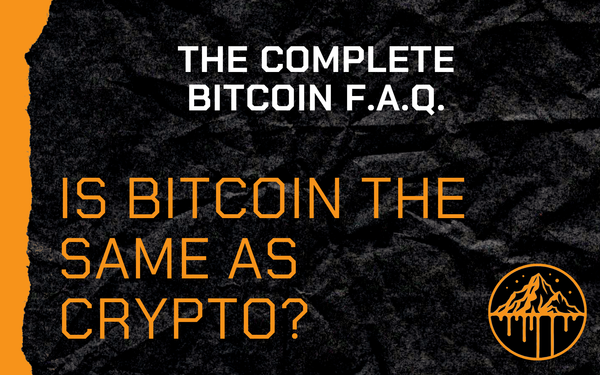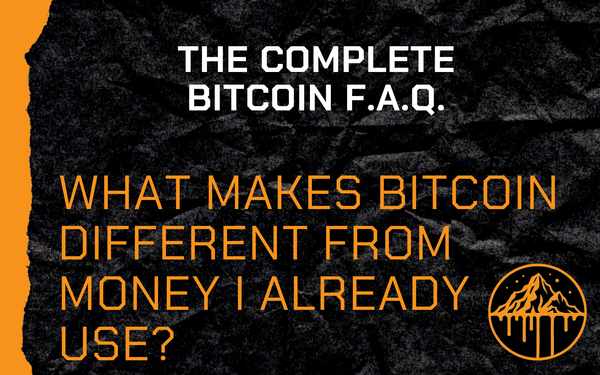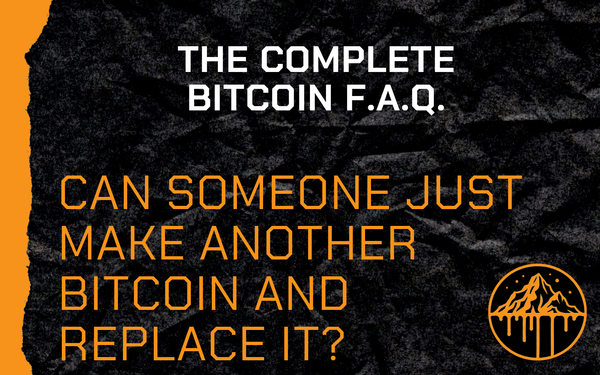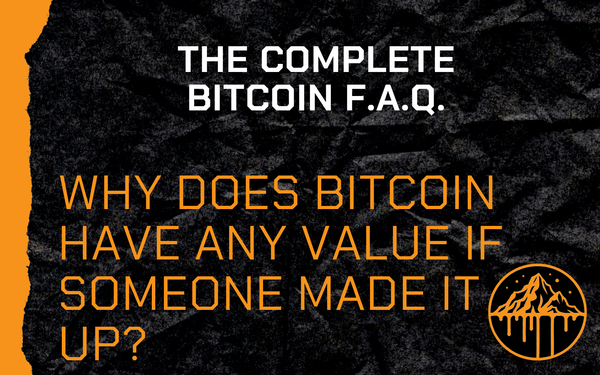The 99.8% Problem
If you’ve been stacking sats for years, congratulations—you are an early settler in the new monetary frontier.
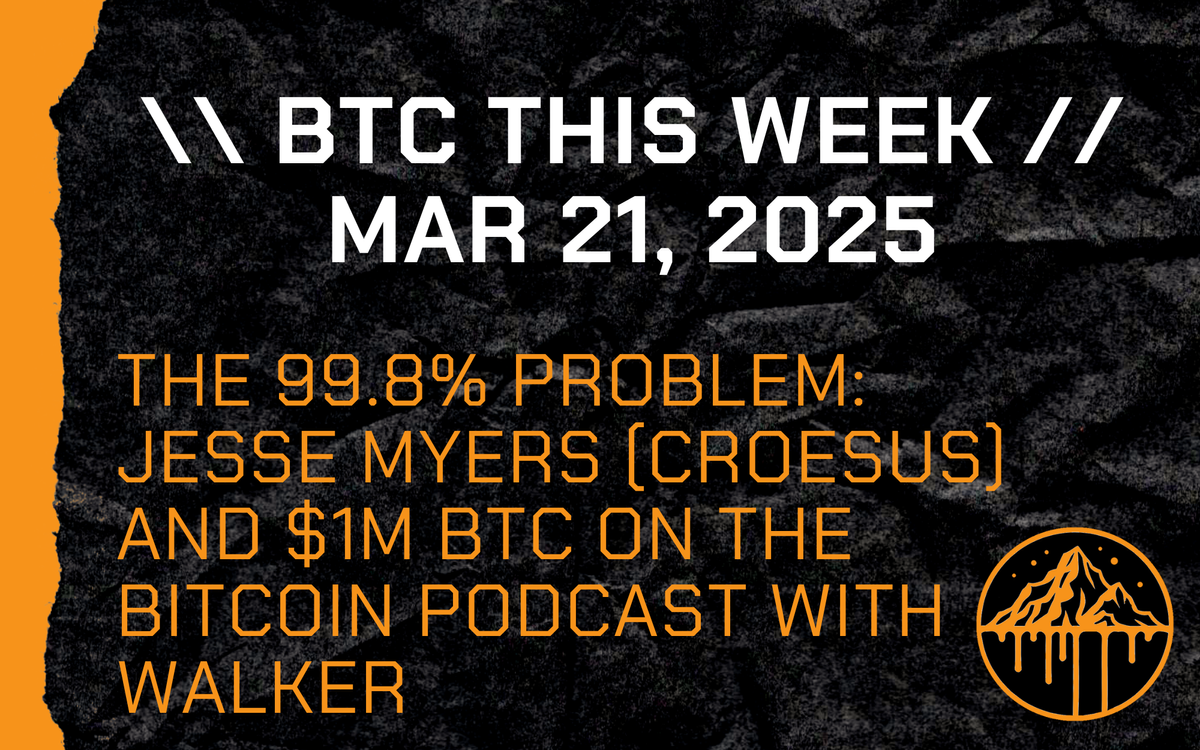
Jesse Myers (Croesus) and $1M BTC on THE Bitcoin Podcast with Walker
The Misconception That Bitcoin Adoption Is “Over”
If you spend enough time in Bitcoin circles, you might think adoption is nearly complete. Everyone you follow is bullish. Every news cycle seems to bring another billionaire, corporation, or country into the fold. Even the U.S. government is now building a Strategic Bitcoin Reserve.
But Jesse Myers (Croesus) has a harsh reality check: 99.8% of the world still doesn’t own any Bitcoin. Recently on THE Bitcoin Podcast with Walker, Jesse shared some interesting insights.
Myers argues that Bitcoin’s path to becoming the dominant global store of value inevitably requires adoption by institutions and governments. He emphasizes that Bitcoiners who resist this reality were always being unrealistic—any asset aspiring to be a reserve currency must integrate with how capital is allocated at the highest levels. Trump’s Strategic Bitcoin Reserve policy has legitimized Bitcoin in ways that will accelerate a game-theory-driven global race among nations and institutions to accumulate it before they fall behind.
“Any bitcoiner who is mad that that governments are getting involved in Bitcoin was always being unrealistic about what the path of maturation is for a store of value asset... the path to becoming the world's preferred store value asset goes through institutions and government. There's no way to become the preferred store of value asset without becoming part of how governments and institutions manage their assets and allocate capital.”
Despite Bitcoin’s rising prominence, Myers highlights that adoption is still in its earliest stages. Fewer than 0.2% of the world has significantly adopted Bitcoin, meaning the upside remains vast. He compares early Bitcoiners to pioneers settling the American West—those who take the risk and endure skepticism will ultimately reap the biggest rewards. The biggest barrier to adoption, he argues, isn’t intelligence but trust—many highly educated elites dismiss Bitcoin because they’ve spent their lives believing in legacy financial systems.
Myers also points to Michael Saylor and Strategy’s financial innovations as a sign that Bitcoin is already extracting capital from traditional assets like bonds, real estate, and gold. He sees this as part of a broader shift where Bitcoin becomes a necessity for capital preservation, not just an investment option. As institutional adoption accelerates, Bitcoin’s price will continue to rise, forcing more individuals and nations to enter the market—not out of belief, but out of fear of missing out.
In summary, Myers explains that while it may feel like Bitcoin is everywhere, we are still in the earliest stages of adoption—so early that we haven’t even hit the first 2.5% of the population, the “innovator” stage of the Rogers Adoption Curve. In other words, we’re still in the pre-Gold Rush era, where only the true pioneers are staking their claim.
Bitcoin Pioneers vs. The 99.8%
If you’ve been stacking sats for years, congratulations—you are an early settler in the new monetary frontier. But as any pioneer knows, being first comes with challenges. The risks are high, the infrastructure is still being built, and worst of all? Most of the people you care about think you’re crazy.
“We're way, way earlier than people typically think... there's 4 million addresses on-chain that have 0.1 or more Bitcoin in them... Round that up for people who have Bitcoin on exchanges, maybe 10 or 20 million people have some significant savings in Bitcoin. But there are 8 billion people in the world. So we're still talking about 0.2% of the world having adopted Bitcoin at this point in time.”
This is the paradox of innovation. Those who see the opportunity first reap the biggest rewards, but they also face ridicule, skepticism, and isolation. Bitcoiners know this all too well. Friends and family roll their eyes. The media calls us cultists. Financial experts still dismiss Bitcoin as a speculative asset rather than what it really is: a revolutionary savings technology.
For Myers, this is all part of the process. The world doesn’t change overnight. It grinds forward, slowly, until one day, everyone “knew it all along.”
Hindsight Bias and the Great Bitcoin FOMO
Once Bitcoin reaches mass adoption, hindsight bias will kick in. The same people who ignored, mocked, or dismissed it will suddenly claim they saw it coming. Governments, banks, and institutions will act as if they always understood Bitcoin’s value. But the reality is, most people won’t buy until they feel forced to.
Myers compares this to the early days of the internet. In the 1990s, only a handful of visionaries saw its full potential. Today, people can’t function without it. Bitcoin is following the same trajectory. The question is: Do you want to be ahead of the curve—or forced to play catch-up?
This is familiar territory for me. I first “surfed the World Wide Web” with a 14.4 baud modem. My first cell phone had a removable antenna, and I fully embraced music NFTs, which eventually led me to Bitcoin (in lieu of my “shitcoin phase”).
Bitcoin’s Inflection Point Hasn’t Even Happened Yet
Despite Bitcoin’s explosive growth, we’re still before the major inflection point. Myers estimates that true mass adoption won’t begin until the first 2.5% of the world has significant Bitcoin holdings. At that point, the rest will pile in, not because they understand it, but because they can’t afford not to.
“How it's going to go is you're going to get FOMO because you're going to watch the price of Bitcoin go to a million dollars, and at some point along the way, you're going to wish you owned some. And then it’s going to keep going up without you, and then you’re going to say, ‘Okay, I should fucking own some.’”
The institutions and nation-states waking up to Bitcoin today are just the first dominoes. When FOMO spreads to every pension fund, every sovereign wealth fund, every central bank, the real Bitcoin mania will begin. Until then, this is the moment to accumulate.
Final Thought: If You’re Reading This, You’re Still Early
Bitcoiners often joke that we are all still early. But Myers’ data backs it up. We are still at the frontier, and the digital land grab is still happening.
The takeaway?
HODL as if your life depended on it. And be patient with the 99.8%—because someday, they’ll wish they listened.
Wealth melts. How much you got left?
Disclaimer: Melting Wealth is not financial advice. It’s a wake-up call. Think for yourself, question the system, and take responsibility for your decisions. Your money, your risk, your move.


